It Takes a Village
Travel companies giving back
This is a feature from Issue 8 of Charitable Traveller. Click to read more from this issue.
Tourism has a huge effect on the communities that it touches. At the positive end of the scale, it creates jobs, brings much-needed sources of income and creates meaningful connections between people of different cultures who might not otherwise meet.
But the companies who operate tours are often criticised for the negative impact they have too, accused of sweeping through communities, dropping bus-loads of tourists off without worrying if there is an infrastructure to cope with them, not contributing to the local economy or interacting with local people in any significant way, and then bustling out again with little thought to the rubbish or other ill effects they leave in their wake.
Luckily there are many tour operators who are conscious about how they operate in the communities they visit, and some who are actively trying to make a positive, culturally sensitive impact.
“Sustainability isn’t only about carbon emissions, social sustainability is also vitally important,” tour operater Intrepid Travel’s EMEA Managing Director, Zina Bencheikh says. “Millions of communities around the world rely on tourism for their income and using a local tour guide, eating in the best local restaurants, even hopping on public transport, are all fantastic ways to have a positive impact on a place you visit, as well as get under the skin of a destination.”
Intrepid is certified as a B-Corp, an official designation given to businesses that balance purpose with profit and make decisions to create a positive impact for communities, as well as their workers, customers, suppliers and the environment. The tour operator also has a non-profit arm, the Intrepid Foundation, which aims to accelerate community-led sustainable development through tourism and has contributed more than 12 million Australian dollars to over 130 community organisations across the world since 2002.
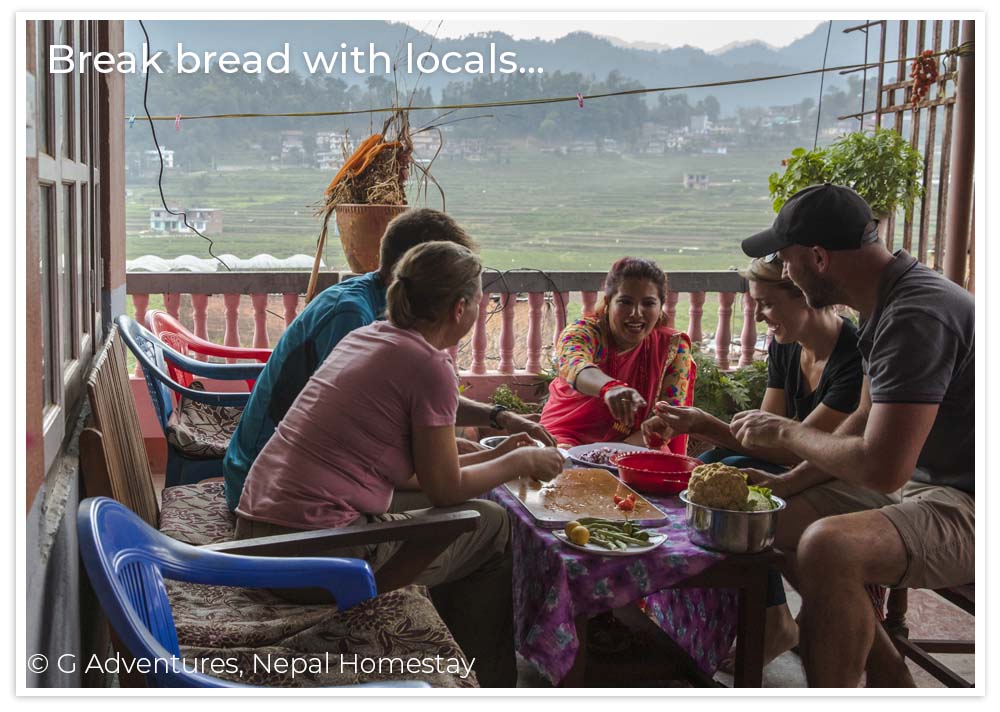
Shining a Light
The Globus Family of brands, including tour operator Cosmos and river cruise operator Avalon Waterways, is highlighting its work with communities through the Lighthouse Project. As well as supporting various charities – Landmine Design, UNICEF, Childsafe Network, Rural Aid and Foundation Galapagos – it supports worthy organisations and communities via a combination of visits on tours and donations. Beneficiaries range from the KOTO Hospitality Training Centre in Vietnam, a social enterprise that empowers at-risk and disadvantaged youth through its holistic hospitality training programme, to Indigenous Amazon communities via lodge stays in Ecuador and Peru.
“We are acutely conscious that the places we go to need to remain in their best state so that we can continue to take our guests there
for years to come,” says Giles Hawke, CEO of Globus.
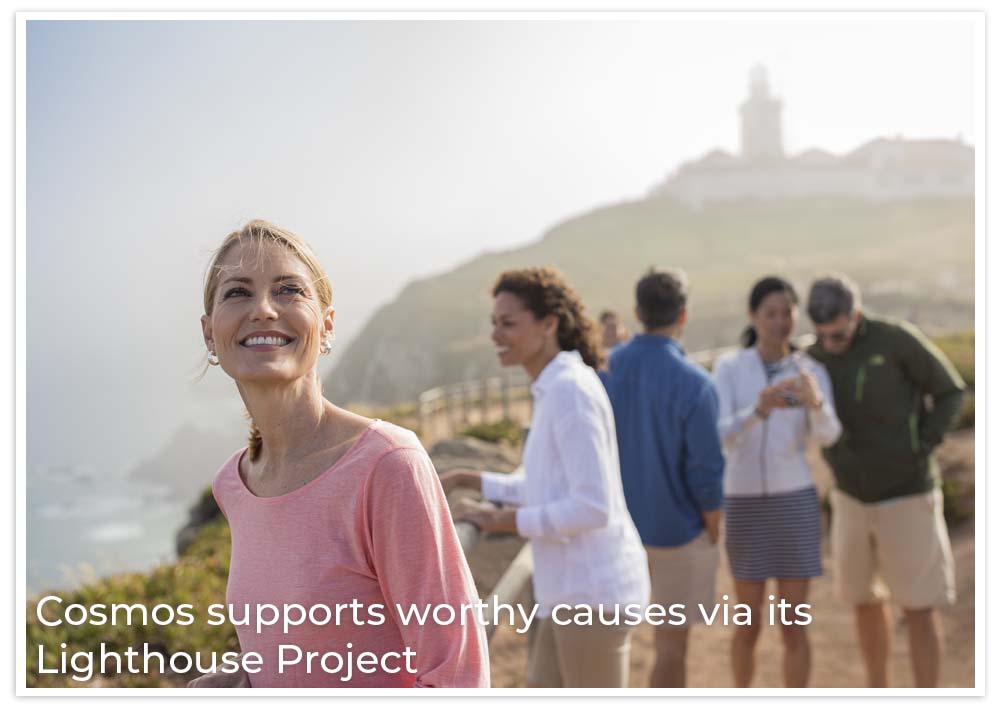
By working with communities and local partners Intrepid has supported the development of many new community-based tourism experiences in off-the-beaten-track destinations that otherwise wouldn’t see the benefits of tourism.
“An example of this is in Nepal’s Madi Valley,” Bencheikh says. “The wild animals that live in Nepal’s Chitwan National Park cause huge issues for the surrounding villages in the valley like Shivadwar. Local farmers are reliant on their crops for food and income and animals wandering in from the park can cause huge damage. We teamed up with Nepal’s World Wildlife Fund (WWF-Nepal) to create a village-run community of homestays and activities for international travellers and this has not only created jobs and generated income, it has empowered the locals, particularly women, socially and personally.
And for visitors? “It’s a chance to experience a different way of life,” says Bencheikh. “You’ll learn about local customs, eat home-cooked traditional dishes and enjoy the countryside. You’ll see the benefit of tourism right in front of your eyes: a new fence that rings the community and stops unwanted wildlife, paid for by tourism dollars.”
Simple Changes
One of tour operator Explore Worldwide’s most impactful community projects was started by a member of its regional staff. Hillary Matemu was working in the Kilimanjaro region when she started the One Bike scheme, which works with local teens to teach them how to repair bicycles. One Bike has gone on to run ‘re-cycling’ litter-picking bike rides, with staff and locals collecting rubbish to be recycled.
“Explore’s donation was used to buy bikes and spare parts for the apprentices to use, with Hillary starting the training himself,” explains Ben Ittensohn, Director of Global Sales at Explore. “Bikes are a main source of transport in the area, so learning to repair them gives young people the required skills for a lifelong income. Our guests can see it in action on our Kilimanjaro Lemosho Trek trip.”
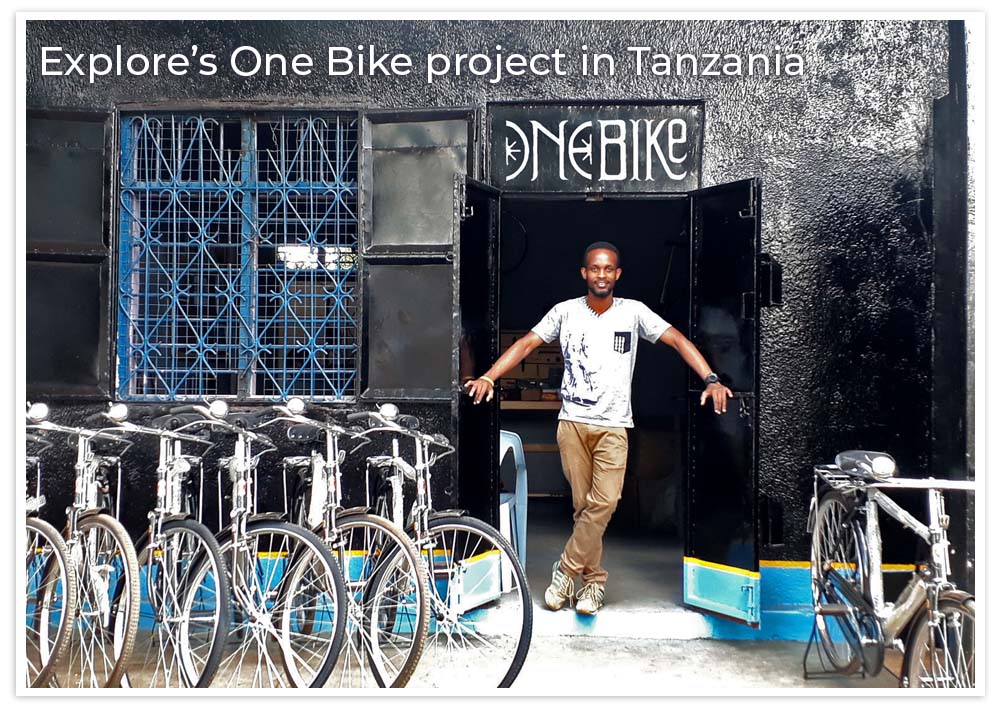
G Adventures is another tour operator with a non-profit arm – Planeterra works with community tourism enterprises led by women, youth, Indigenous and rural communities. The company supports over 100 community tourism projects around the world.
“Our trips are designed in such a way that all travellers have to do is go away, have a great time, and the money they spend will directly benefit the local communities and economy that they visit,” says Brian Young, Managing Director of the adventure tour operator.
Young thinks that responsible travel and adventure tourism has always gone hand-in-hand. “The nature of our off-the-beaten-track tours allows us to distribute wealth and have meaningful interactions with local communities, without the damage caused by mass tourism,” he explains.
G Adventures has audited over 600 of its tours using its own ‘Ripple Score’, which shows the percentage of money spent in destination on a trip that goes directly to locally-owned businesses. It has declared an average score of 93 across all its trips, meaning 93% of all money spent on those tours goes into the pockets of the local people.
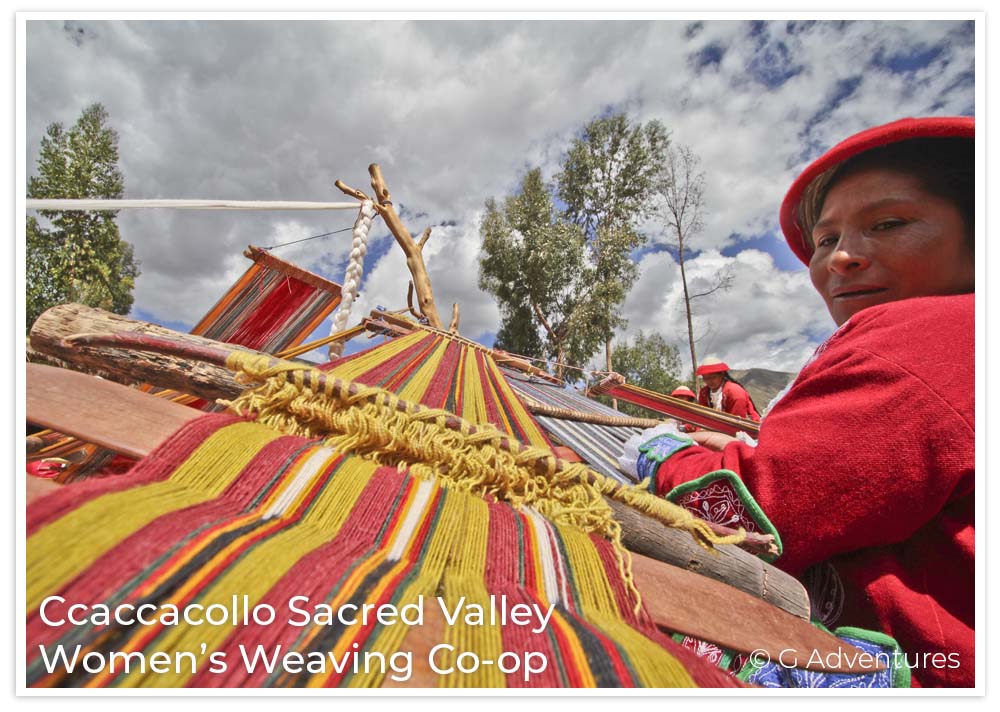
Keeping Traditions Alive
In Peru, an incredibly popular destination for G Adventures, it employs a number of local people to support its Inca Trail tours, from guides to porters and horsemen, who benefit from the tourism brought to the region. This isn’t unusual. But in addition to this G Adventures has helped to support a number of community tourism projects, such as a women’s weaving cooperative in the Sacred Valley.
“Travellers visiting the women help to preserve the ancient weaving techniques of the Indigenous communities while also offering income opportunities to the women,” says Young.
Explore also supports Indigenous women’s weaving, but in rural China. Visiting a remote village in the Sanjiang region on Explore’s China on a Shoestring tour, guests stay in a local guesthouse and immerse themselves in the culture of the Dong people, an ethnic minority. The money the tours has bought to the village has helped to facilitate the purchase of looms and materials and means the women have income and economic independence.
Back in Peru, G Adventures guests also have the opportunity to visit the Parwa community restaurant in Peru, which benefits over 1,000 locals, and visit Parque de la Papato learn about life in a rural Andean agricultural community. The park, in the highlands of the Sacred Valley is made up of five communities with 7,000 Indigenous people working together to preserve around 1,300 varieties of native potato as well as the ancient teaching related to their cultivation.
Close to Home
“Travel brings income to some of the world’s poorest countries, but tourism can have a hugely positive impact on more developed regions too, says Young. “In Europe, for example, G Adventures works with projects in Naples and Rome which offer city tours led by migrants. These give amazing cultural experiences for travellers while celebrating the beauty created by the melting pot of cultures in these regions.”
Also recognising European communities in need, Explore awarded £1,000 of its Start Up Fund to the Guest House Museum in Pellumbas Village, Albania in 2019.
“The museum was created by the Duqi family from an abandoned village house,” explains Ittensohn. “They were building accommodation to showcase traditional Albanian life to visitors and we’ve donated money for them to expand it into a larger building. Our Highlights of Albania groups now visit here.”
Explore also supports a project in Greece via its Self-Guided Andros Trail tour. “We have provided funding to keep island trails maintained for our hiking trip, Ittensohn explains.
“By reusing the old walkways of Andros that connected the villages scattered across the island we are reviving and preserving them as well as helping to regenerate villages that have suffered from depopulation and economic decline. Guests even receive a welcome pack at their hotel with a small pruner and gloves so they can help voluntary organisation Andros Routes to keep the trails trim.”
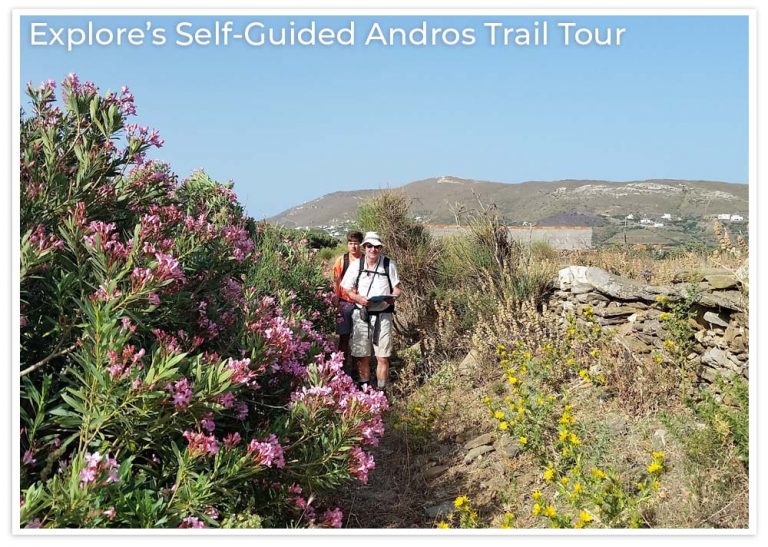
Wherever you go on holiday in 2022, look at the impact your presence will have on the communities you visit and ask yourself, is it positive? As Hawk from Cosmos says: “Communities need to benefit from us going there and the places need to be left in as good a state, if not better, than before you visited.”
This is a feature from Issue 8 of Charitable Traveller. Click to read more from this issue.


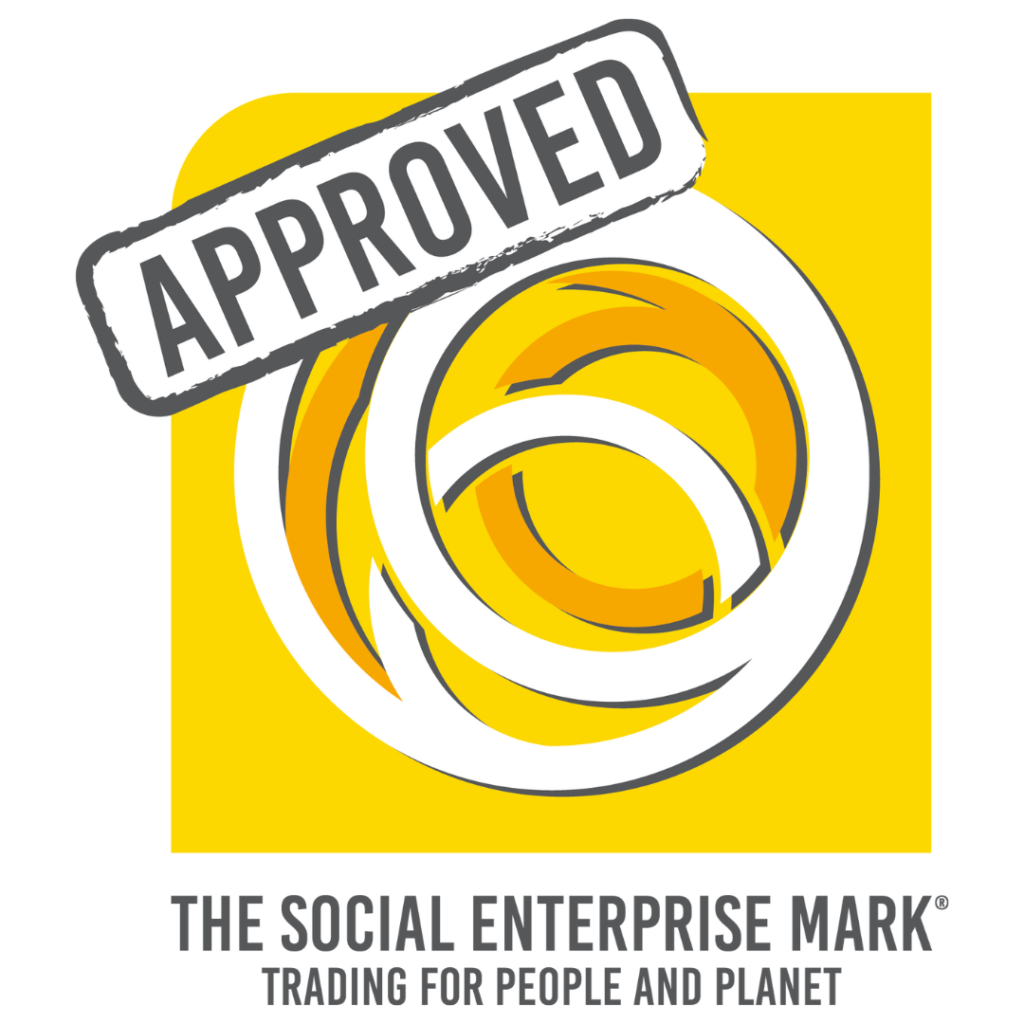
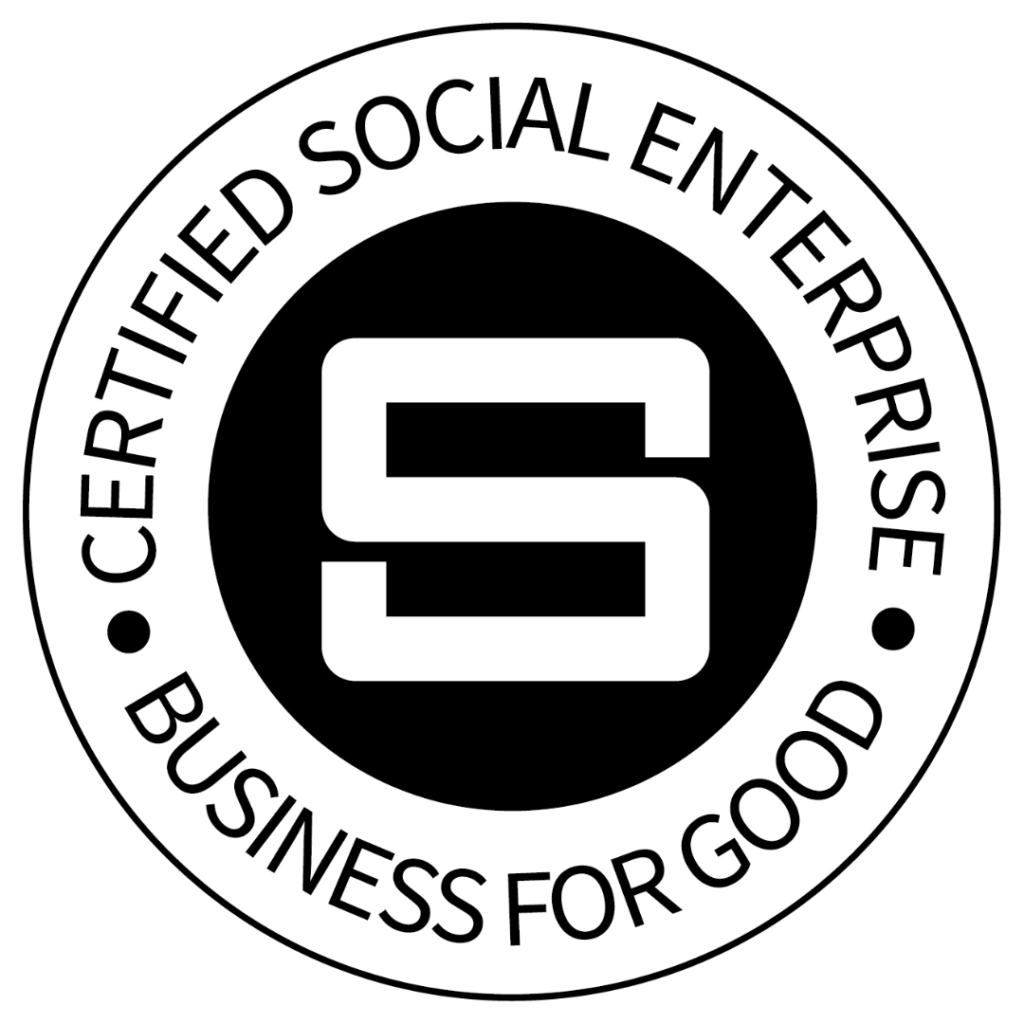



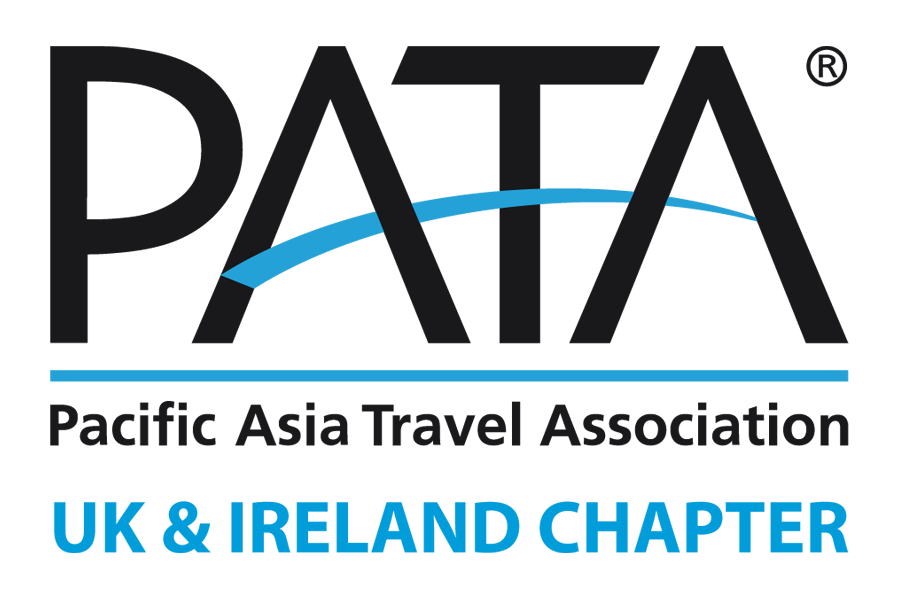
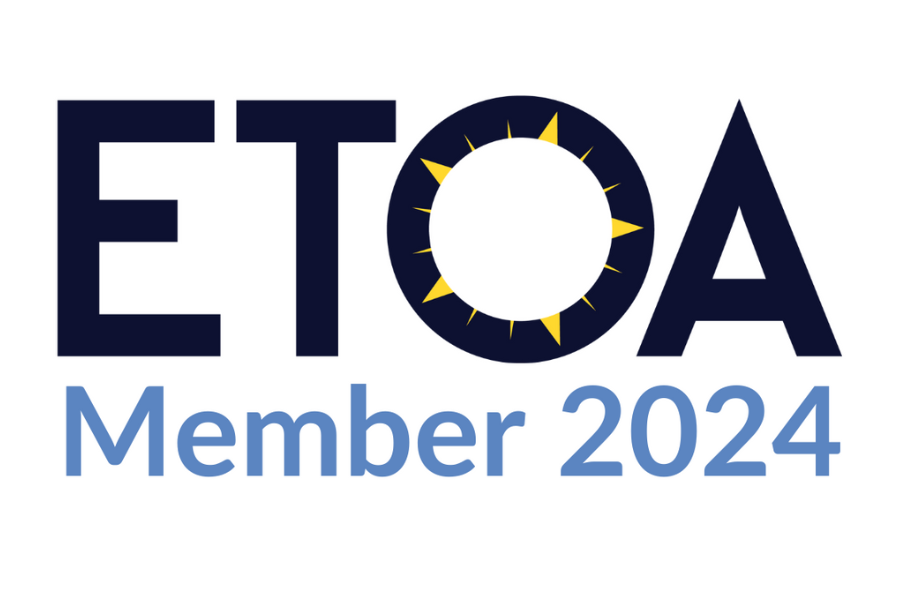
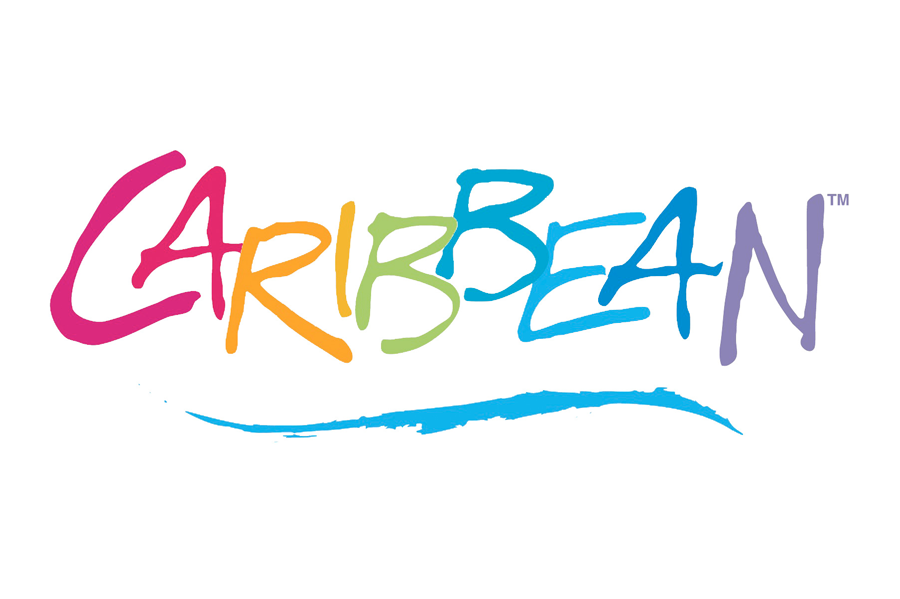
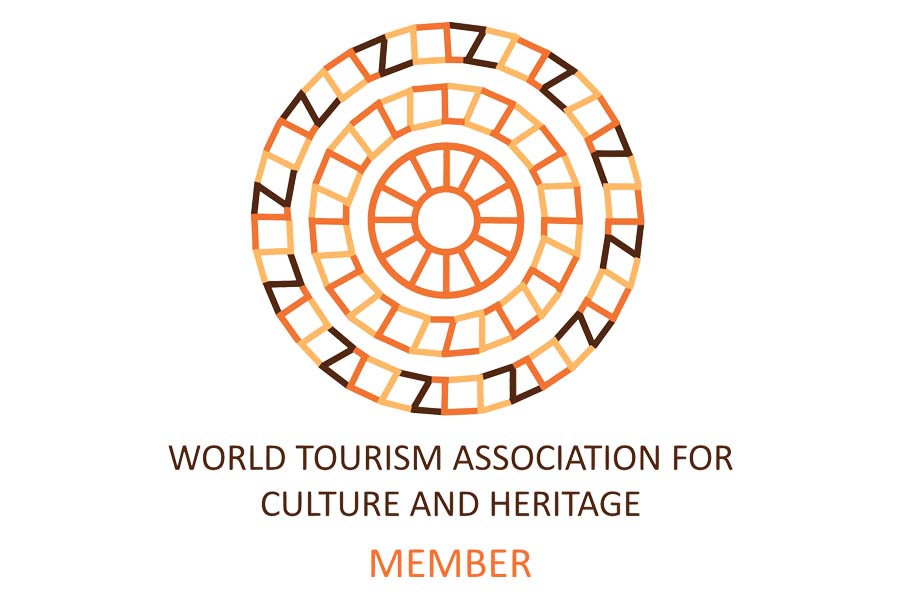
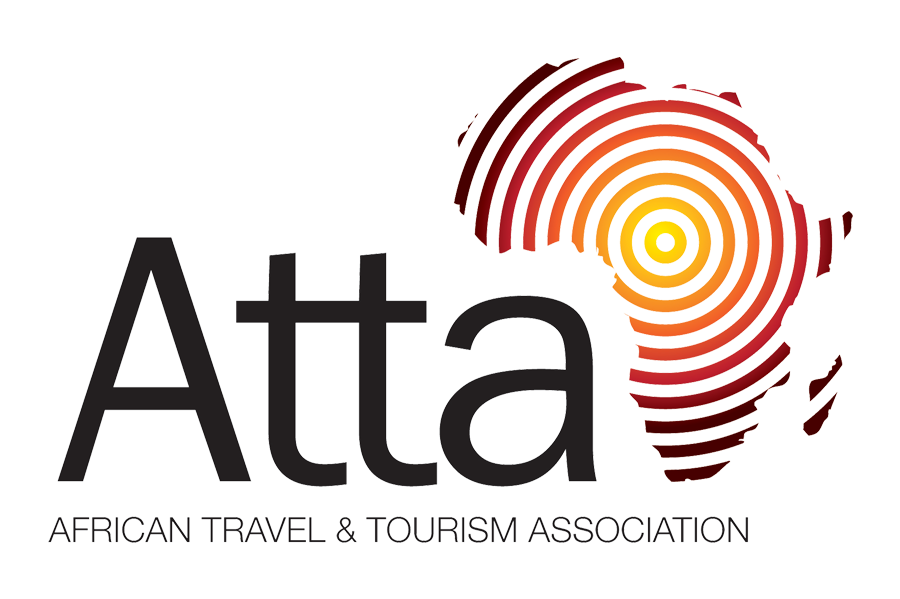



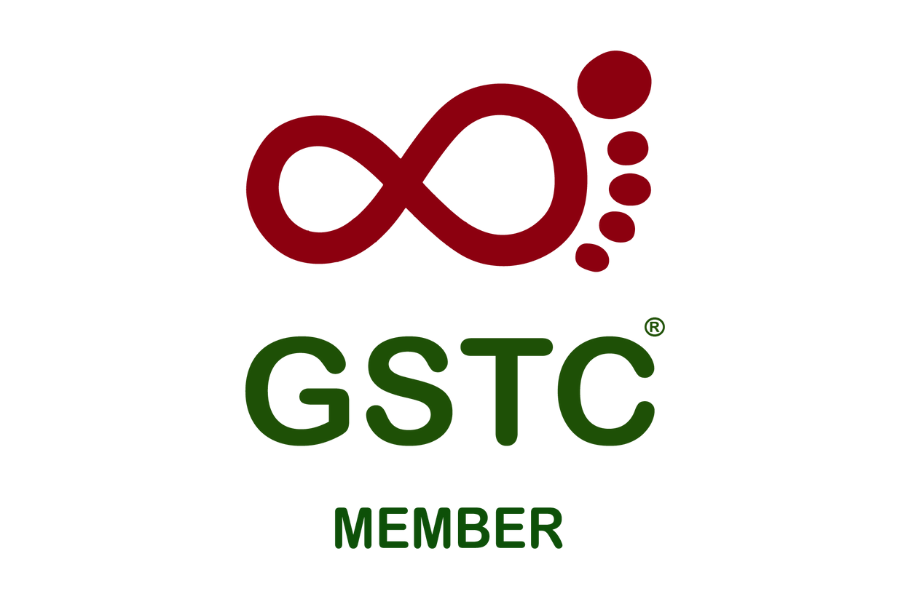

 by net effect
by net effect